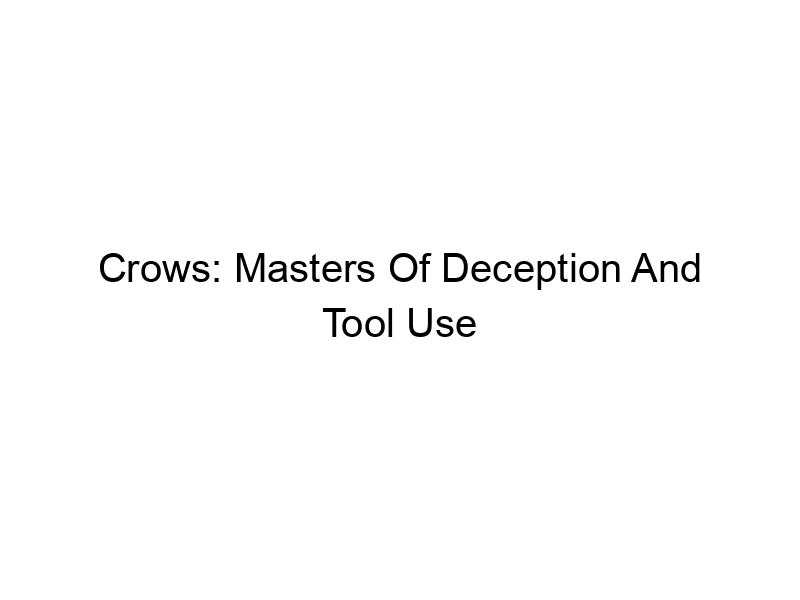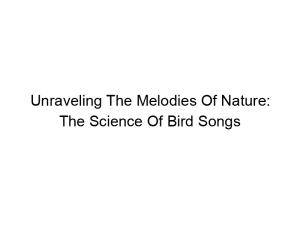Have you ever stopped to consider the intelligence of a crow? These seemingly ordinary birds possess a level of cognitive ability that’s astonishing and continues to fascinate scientists. The Surprising Intelligence of Crows: How Smart Are They Really? is a topic we’ll delve into deeply, exploring their remarkable problem-solving skills, social structures, and capacity for learning. In this comprehensive guide, we’ll uncover the science behind crow intelligence, explore various studies, and examine what makes these birds so uniquely intelligent. You’ll learn about their tool use, complex communication, and impressive memory, leaving you with a newfound appreciation for these often-overlooked creatures.
Defining intelligence in non-human animals can be challenging, as it’s often measured against human standards. However, in the context of crows, intelligence is defined by their ability to solve complex problems, learn from experience, use tools, and
exhibit advanced social behavior. This includes problem-solving skills, tool use, and social intelligence.
Problem-Solving Abilities of Crows
Innovative Problem-Solving Techniques
Crows demonstrate remarkable ingenuity in overcoming obstacles. Studies have shown their ability to create tools from twigs and other materials to retrieve food from hard-to-reach places. They can also solve complex puzzles requiring multiple steps, showing a higher level of planning and foresight. For example, researchers have observed crows bending wire to create hooks to retrieve food.
Tool Use in Crows
Advanced Tool Manufacturing and Usage
Beyond simple tool use, crows exhibit a sophisticated understanding of tool mechanics. They aren’t just using tools; they are modifying them to better suit their needs. This level of cognitive sophistication was once thought to be exclusive to primates. Experiments have shown that crows can even select the optimal tool for a particular task, demonstrating a nuanced understanding of cause and effect.
Social Structures and Communication
Complex Social Hierarchies
Crows live in complex social groups with intricate hierarchies and communication systems. They exhibit cooperative behavior, such as group hunting and mutual assistance in defending territory. Their sophisticated social dynamics require advanced cognitive abilities for understanding social cues and navigating social complexities.
Communication and Language
Vocalizations and Non-Verbal Communication
Crows employ a diverse range of vocalizations, each with specific meanings. Their calls communicate information about food sources, predators, and social status. They also utilize body language and postures for communication, adding layers of complexity to their interaction. Researchers are still actively decoding their vocal language and the extent of their comprehension.
Memory and Learning
Exceptional Memory Capabilities
Crows have exceptional memory. They can recognize individual human faces, remember past interactions (both positive and negative), and even remember the locations of cached food over extended periods. Their spatial memory is particularly impressive, allowing them to recall the precise locations of hundreds of hidden food items.
Brain Structure and Function
Neurological Basis of Crow Intelligence
The neurological underpinnings of crow intelligence are an active area of research. Scientists are studying the structure and function of the crow’s brain to understand the neural mechanisms underlying their impressive cognitive abilities. Comparisons to primate brains reveal some structural similarities related to higher cognitive functions.
Evolutionary Perspective
Cognitive Evolution in Birds
The intelligence of crows highlights the diversity of cognitive evolution in birds. For a long time, primate intelligence was considered exceptional, but the discovery of such complex cognitive skills in birds challenges this anthropocentric view. It sheds light on the evolutionary pressures that shaped the intelligence of diverse species.
Conservation Implications
Protecting Crow Habitats and Populations
The intelligence of crows underscores the importance of conservation efforts to protect their habitats and populations. These fascinating birds play a vital role in their ecosystems, and their decline could have significant ecological consequences. Preserving their habitats ensures the continued study and appreciation of their remarkable intelligence.
Comparing Crows to Other Animals
Cognitive Abilities Compared to Primates
While primates are often cited as the most intelligent animals, crows demonstrate cognitive skills previously thought exclusive to primates. Comparing their abilities highlights the convergence of intelligence in distantly related species, showcasing the diverse evolutionary pathways to complex cognition. The similarities and differences offer valuable insights into the nature of intelligence itself.
Mythology and Folklore
Crows in Culture and Literature
Crows feature prominently in mythology and folklore across various cultures. Their intelligence and often-misunderstood nature have led to a variety of symbolic interpretations, ranging from omens of death to symbols of wisdom and intelligence. Exploring these cultural representations provides a fascinating look into humanity’s relationship with these intelligent creatures.
Research Methods and Ethical Considerations
Ethical Approaches to Studying Wild Animals
Studying wild animals requires careful consideration of ethical implications. Researchers must prioritize the welfare of the animals and avoid causing them stress or harm. Minimally invasive techniques and observational studies are essential to ensure ethical research practices in the study of crow intelligence.
Future Directions in Crow Research
Unanswered Questions and Future Studies
Despite significant advancements, many questions remain about crow intelligence. Future research will focus on uncovering the intricacies of their communication, their capacity for social learning, and the specific mechanisms underlying their remarkable cognitive abilities.
Frequently Asked Questions
What are the key factors contributing to crow intelligence?
Several factors contribute to crow intelligence: a large brain relative to body size, complex social structures requiring sophisticated communication and cooperation, and a capacity for problem-solving and tool use learned through observation and experience.
How do crows communicate with each other?
Crows use a combination of vocalizations, body language, and even non-verbal cues. Their calls are varied and convey a range of information, including warnings about danger, location of food, and social status. Their body language, like posture and wing movements, adds additional layers of meaning.
Do crows exhibit self-awareness?
While not definitively proven, there’s suggestive evidence that crows possess a level of self-awareness, potentially similar to that of some primates. Future research will need to further investigate this using methods like the mirror test.
How do crows use tools?
Crows utilize tools to access food sources that are otherwise difficult to reach. They’ve been observed bending wire to create hooks, using sticks to probe for insects in crevices, and even using pebbles to crack nuts. Their tool use shows adaptability and planning abilities.
Can crows recognize individuals?
Yes, crows have remarkable facial recognition abilities. They can remember and distinguish between individual human faces, even years later. This suggests a capacity for complex social memory and recognition.
What is the significance of crow intelligence in the broader context of animal cognition?
Crow intelligence challenges our understanding of cognitive evolution. It demonstrates that complex cognitive abilities can evolve in species other than primates, highlighting the diversity of intelligence across the animal kingdom and expanding our understanding of the evolutionary processes leading to high intelligence.
Final Thoughts
The surprising intelligence of crows is a testament to the power of natural selection and the diversity of cognitive abilities in the animal kingdom. Their problem-solving skills, complex social structures, and remarkable memory capabilities challenge our anthropocentric view of intelligence, reminding us that advanced cognitive abilities can emerge in unexpected places. By studying crows, we gain a deeper understanding of the evolution of intelligence and the fascinating complexity of the natural world. Their intelligence is not only impressive but also emphasizes the importance of conservation efforts to protect these remarkable birds and their habitats. Continue to explore the mysteries of the avian world – you might be surprised by what you discover.




